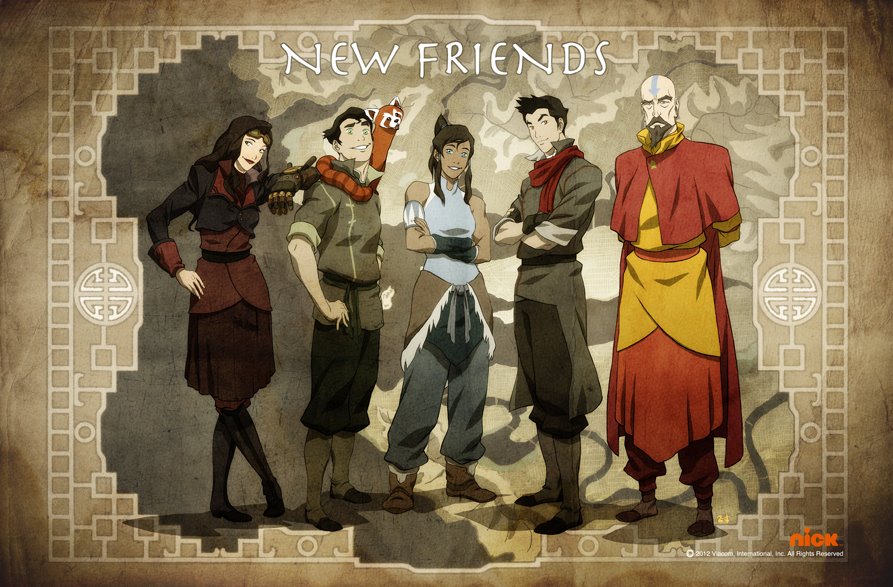-
Posts
256 -
Joined
-
Last visited
Posts posted by Dániel Boros
-
-
People are moving to Russia to escape Socialism. Hahaha so ironic...
-
I think the term Universe may be used in methaphysics in a different way than in epistemology. Fine tuning is methaphysics.
For a definition I would say: The thing that started with the big bang. Obviously the Universe did not start...
-
http://en.wikipedia.org/wiki/Antropic_principle
If I understand it correctly the anthropic principle states that the Universe is fine tuned for life because otherwise we would not be here asking why the Universe is finely tuned.
It is true that we would not be here if fine tuning was out of sync with life, but that doesn't mean that that is the cause of the fine tuning.
If the Universe conisted of many 'smaller universe' it would makes sense that life would only exist in a universe where the laws and constants are finely tuned, that however does not prove that there are more than one universe, therefore (if no evidence for a Multiverse exists) the anthropic principle is wrong.
Also there is no need to explain any supposed fine tuning of the Universe. It is what it is and that's all we need to know.
Or am I wrong?
-
I would suggest this instead. It is much closer to the meaning of the original sentence, for three reasons:
1. the original sentence implies that the minor difference DOESN'T matter in this context, not that it 'barely matters'.
2. It also points out that there is a minor difference ("egyenerteku" doesn't mean that, since it literally translates to and means that the two "have the same value").
3. "an assertion" is not the same as "the assertion". You're translating it as "the assertion", but the English sentence is about "an assertion".
Egy allitas tagadasanak ismerete es az allitas ismerete kozott a kulonbseg (oly)annyira jelentektelen, hogy nem szukseges (or "erdemes", for a more natural feel) figyelembe venni.
Yeah this one is better. Number three depends on context though.
And this is what google translated it back to:
The statement is equivalent to the denial of knowledge so knowledge of the claim that almost all of which of the report we are aware of
Hungairan is a lot different than most (and by most I mean all) European languages since we came from a far.
You know I've always heard that Hungarians are really Martians.
Actually we are from Venus
-
Thank you everyone for your comments
Just for kicks here's my translation:
"Az állítás tagadásának ismerete olyannyira egyenértékű az állítás ismeretével, hogy szinte mindegy melyiknek a jelentésével vagyunk tisztában."
-
I am translating Antony Flew's Theology and Falsification (http://www.politik-salon.de/files/theory_of_falsification.pdf) from English to Hungarian, however I have a sentence that I cannot translate, because I am simply unable to understand the meaning of the sentence.
For if an utterance is indeed an assertion, it will necessarily be equivalent to a denial
of the negation of that assertion. And anything which would count against the assertion, or which
would induce the speaker to withdraw it and to admit that it had been mistaken, must be part of (or
the whole of) the meaning of the negation of that assertion: And to know the meaning of the
negation of an assertion, is as near as makes no matter, to know the meaning of that assertion. And
if there is nothing which a putative assertion denies then there is nothing which it asserts either: and
so it is not really an assertion.Can anyone please explain in detail what does the highlighted sentence mean?
thanks in advance
-
Here we have a problem, for without the Infinity Axiom we cannot construct the classical Natural Numbers, much less the Real Numbers. There exist non-standard maths that may do the trick, but what do objectivists accept?
Rejection of LEM is one way of avoiding the objections implicit in Ockham's Razor (and Rand's Razor) to distinguishable infinities. In classical mathematical theory, there are more transcendental numbers than algebraic numbers, though there are an infinity of each. There are so few algebraic numbers that their measure is zero. Now, all of this is absurd at some basic level. You can resolve these meaningless distinctions by rejection LEM but as Grand Minnow has pointed out that doesn't get you past the problems inherent in the Infinity Axiom. However without that axiom you cannot have the classical Natural Numbers. One might like to believe that Natural Numbers are observable properties of collection of observable objects. Therefore, a theory needs to account for them that doesn't assume the Infinity Axiom.
There are other reasons for rejecting LEM, but this is enough for now.
What is the infinity axiom?
-
For Attila
"The fact that a believer is happier than a skeptic is no more to the point than the fact that a drunken man is happier than a sober one." - George Bernard Shaw
Whether someone will be happier thanks to his or her study of philosophy is not guaranteed. Someone who (for example) lives on 1$ a day probably could use his or her time more productively than studying philosophy...
-
I don't believe that LEM has much to do with the original question. Does anyone have any input on the concept of physical constants and how they should be treated or thought of?
-
one word: excellent

-
*** Mod's note: Merged topics "FISHING AND PROPERTY. - sN ***
Fishing is the prime example of the tragedy of commons. Since nobody owns the Ocean nobody abides by the regulations governments set for fishing thus destroying their own bread and butter in the long run. Obviously fish in the Ocean do not respect property rights, but is there no better way to conserve the amount of fish in the water than to regulate how much fishing boats can fish?
-
According to what I have read here: http://forum.objecti...showtopic=12514
... the extension of space and | or time cannot be infinite (and are also discrete) since infinity cannot be applied to physically existing things. If that is so can it be possible that the physical constants we use and are regarded to be irrational numbers can be interpreted in ways in which they would not need an infinitely long number to represent them? If we get the right point of reference shouldn't these constants be integers, or at least finitely long?
-
Why? Euclidean geometry can work in any hypothetical space with bounds and also in the ones without bounds. Why would the latter be more likely than the prior? No Universal constant is infinite (equal to infinity) so why should the extension of space be an exception?
-
Now it turns out that recent discoveries in Astronomy suggest that the Universe may very well be Infinite. And by that I mean that it if you travel in 1 direction you will never return to where you started from nor run into any sort of spacetime boundary. This is due to the fact that based on data collected from the WMAP satellite, the Cosmos has as flat(Euclidean)geometry and with no signs of any actual boundaries, the appropriate conclusion is that it is Infinite spatially and has no end and no beginning.
That's far from being conclusive. No matter how long you have travelled in a infinite Universe you could never prove that it is infinite since you can only travel a finite distance. Same is true for light and anything else we can measure.
-
If the Universe is finite in both time and space and if causality works as we think it does than there had to be a first cause, right?
A cause not caused by anything, an existence that is necessary for things to exist.
Or am I wrong?
-
Aren't values what etchics is all about?
When a musician sings - And without music what would my worth be? - don't you think he believes that his highest value is to do creative work like Howard Roark did?
Also this:
And the night without dreams,Your life without exploits,
Tell me, tell me, tell me, tell me what would their worth be?
I never said this was Ayn Rand grade literary work. If it were the guy would have most likely ended up in prison.
-
This is a song that in my opinion could be easily called the hymn for rational selfishness. Hope you will like it.
"Zene nélkül mit érek én" in hungarian:
Tető nélkül apró házad mondd, mit ér,
A legszebb híd a folyó nélkül mondd, mit ér,
És a tűz a meleg nélkül,
És a leány a fiú nélkül
Mondd, mondd, mondd, mondd, mit ér?!
Termés nélkül termőfölded mondd, mit ér,
És a kerted a virág nélkül mondd, mit ér,
És az éj az álom nélkül,
Életed a tettek nélkül
Mondd, mondd, mondd, mondd, mit ér?!
És zene nélkül mit érek én,
És zene nélkül mit érek én,
Zene nélkül mit érek én,
Mondd, zene nélkül mit érek én!
Termés nélkül termőfölded mondd, mit ér,
És a kerted a virág nélkül mondd, mit ér,
És az éj az álom nélkül,
Életed a tettek nélkül
Mondd, mondd, mondd, mondd, mit ér?!
És az anya a gyermek nélkül mondd, mit ér,
És a szíved az érzés nélkül mondd, mit ér,
És a nyár a napfény nélkül,
És a föld az ember nélkül
Mondd, mondd, mondd, mondd, mit ér?!
És zene nélkül mit érek én,
És zene nélkül mit érek én,
És zene nélkül mit érek én,
És zene, zene nélkül mit érek én!
És zene nélkül mit érek én,
És zene nélkül mit érek én,
Mondd, zene nélkül mit érek én,
Mondd, zene, zene nélkül mit érek én!
És zene nélkül mit érek én,
És zene nélkül mit érek én,
Mondd, zene nélkül mit érek én,
Mondd, zene, zene nélkül mit érek én!
És zene nélkül mit érek én,
És zene nélkül mit érek én,
Zene nélkül mit érek én,
Mondd, zene, zene nélkül mit érek én!...
Zene nélkül mit érek én in english (my rather poor translation):
Your little home without a rooftop, tell me, what would its worth be,
The prettiest bridge without a river, tell me, what would its worth be,
And the fire without warmth,
And the girl without the boy
Tell me, tell me, tell me, tell me what would their worth be?
Your Land without yield, tell me, what would its worth be,
And your garden without flowers, tell me, what would its worth be
And the night without dreams,
Your life without exploits,
Tell me, tell me, tell me, tell me what would their worth be?
And without music what would my worth be,
And without music what would my worth be,
And without music what would my worth be,
Tell me, without music what would my worth be.
Your Land without yield, tell me, what would its worth be,
And your garden without flowers, tell me, what would its worth be
And the night without dreams,
Your life without exploits,
Tell me, tell me, tell me, tell me what would their worth be?
And the mother without the child, what would her worth be,
And your heart without feelings, what would its worth be,
And the summer without sunlight,
And the Earth without people
Tell me, tell me, tell me, tell me what would their worth be?
And without music what would my worth be,
And without music what would my worth be,
And without music what would my worth be,
And without music, music what would my worth be.
And without music what would my worth be,
And without music what would my worth be,
Tell me, without music what would my worth be,
Tell me, without music, music what would my worth be.
And without music what would my worth be,
And without music what would my worth be,
Tell me, without music what would my worth be,
Tell me, without music, music what would my worth be.
And without music what would my worth be,
And without music what would my worth be,
Without music what would my worth be,
Tell me, without music, music what would my worth be.
Original author Máté Péter from 1982
A very good remake by the band Black to Black
-
I was going the put quotation marks around that word.




-
The Legend of Korra is a famous American animated series whit an interesting backstory.

Story:
In the World of Avatar some people have special magical powers (earth,water,fire,air). The people are called benders. Benders have had a privileged position in society due to their abilities, but their role has diminished over time due to technological advancements. A guy named Amon has the ability to take away any persons bending powers, and he wants to equalize everyone into non- benders. He is the leader of the equalizers and his goal is the great equalization (reminds me of socialsm). Kora is the avatar, a bender who can control all four elements, and who with her friends and some other people opposes Amon so that benders could keep their powers.
What I would like to emphasize from a objectivist standpoint is that the good guys are the ones who have been gifted unfairly with the talents the bad guys want to take away and not the other way around. So the good guys motivation is simply to keep their powers, which is a rather selfish motive.
Setting:
The show takes place mainly in Republic City that was founded by the protagonist from the prequel. The city is a mix of Chinese architecture and the industrial revolution.

-
Good old PZ Myers. He should run for office.
-
-
This is the kind of things which leads directly to bank bail outs and stimulus. If you don't stimulate, or bail the banks out, you have a big recession, but in return, you avoid delaying the recession to the future where it will be more severe and let the economy restructure so that you can get on the track of a real recovery. Just imagine if any President tried to whether a recession without taking action. He would be voted out in a week and the new guy would immediately gain support as the markets react positively to his stimulus and bailouts. The only thing that could avert this is a population of really good ideas but any mixture between good and bad ideas will lead to the bad, whim of the moment, ideas taking over government.
Are you sure that the people supported the bail outs and the stimulus? I mean the current system did not prevent this so don't really see the validity of the argument. I would say politicians did what they did because they knew they could get away with it.
On a side not about the issue of the people being ignorant compared to the wise bureaucrats of Washington:
This is somewhat related to Atlas Shrugged
-
Do you realize how much money would it require to achieve a majority with a 30$ token and that whatever happens could be reversed the same way it was made?
Also if that is all you worry about a time lag can be introduced of 1 week before the token change takes effect. That way people can change their minds for free during that week.
-
This is not direct democracy. In direct democracy you vote on policy not on people and you only need a small number of people to pass any law.
What I suggest in reality isn't any more direct than what we already have.
I am not arguing for direct democracy which is:
Direct democracy is a form of democracy in which people vote on policy initiatives directly, as opposed to a representative democracy in which people vote for representatives who then vote on policy initiatives.If the opinion of the voters don't matter why not have a totalitarian government?


The Anthropic principle
in Metaphysics and Epistemology
Posted
So is WAP useless, but true or is it wrong because of selection bias ?